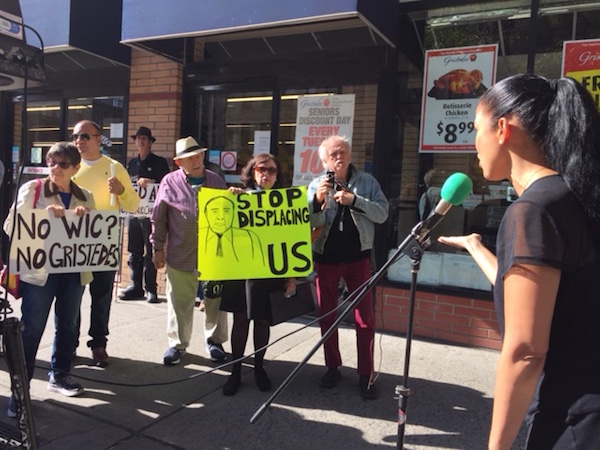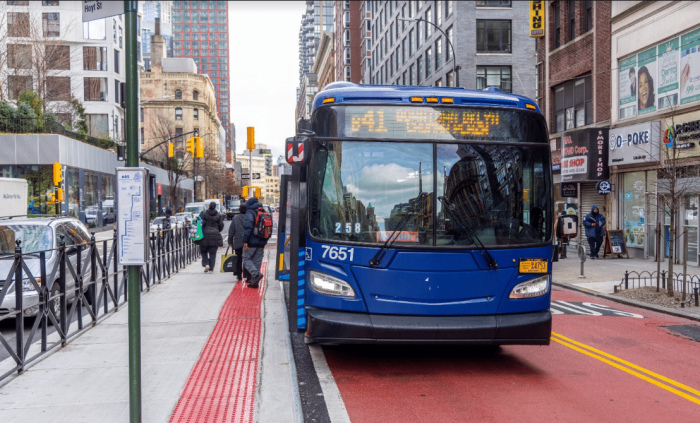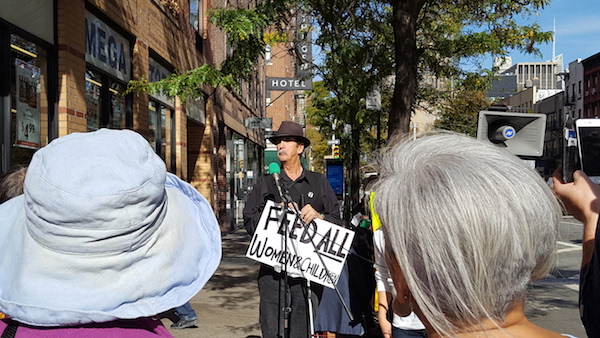
BY DUSICA SUE MALESEVIC | While community activists continue their push for grocery store chain Gristedes to once again accept WIC, the two sides agreed late last week to meet.
John Catsimatidis, owner of Gristedes, and Italo Medelius and Miguel Acevedo, the leaders of the effort, had a conference call on Fri., Oct. 27 (Chelsea Now was also on the call). Catsimatidis said that he wants to take WIC vouchers but he has problems with the way the state runs the program.
Acevedo, who is the president of the Fulton Houses Tenants’ Association, suggested that they work together and meet at his office. The important thing is “these single mothers have the opportunity to use the vouchers,” said Acevedo.
WIC is a supplemental nutrition program for women, infants, and children. The program, which is federally funded but administered by the state’s Dept. of Health (DOH), helps low-income pregnant women, mothers, and children up to the age of five by providing food, such as baby formula, milk, and fruits and vegetables.
Gristedes stopped accepting WIC checks in August 2016. Catsimatidis said that checks from the program were bouncing, and thus he was incurring fees. In an August 17 Chelsea Now article (“Few Options for Chelsea WIC Participants; Petition Demands Change”), Catsimatidis noted there was inadequate reimbursement from the state, saying that they’re “paying us the same prices as people in Buffalo, where the rent is one-tenth” what it is in New York City.
“We want to accept them,” Catsimatidis told Chelsea Now last Friday. “We want the business.”
Jeffrey Hammond, a DOH spokesperson, said in an email that the department has worked closely with Gristedes’ management to listen to concerns and ensure all parties had a clear understanding of the WIC program requirements. Despite these ongoing communications, Gristedes voluntarily withdrew from the program.
Medelius, a Community Board 4 member, has been tackling food access issues in the neighborhood through a subcommittee of the Hudson Guild Neighborhood Advisory Committee. A survey focused on grocery store affordability drew responses about Gristedes not accepting WIC, and a petition was started around mid-July.
The petition now has over 970 signatures, according to Medelius, who, after the conference call, said it “was very helpful. It’s a good, positive first step… He’s taking the necessary steps to make sure we solve this issue.”
However, a protest planned for the next day, Sat., Oct. 28, in front of a Gristedes on Eighth Ave. (btw. W. 21st & 22nd Sts.) would still take place. “We’re not going to let up until the program is reinstated,” Medelius said by phone.
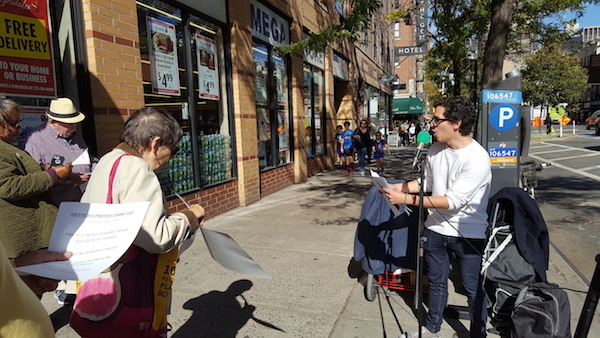
Starting at 1 p.m. on the warm October afternoon, about 15 activists held signs, chanted, and spoke about the need for Gristedes — which has three stores in Chelsea — to take WIC. The other stores are located at 307 W. 26th St. and 225 Ninth Ave.
“I raised two babies with some assistance from WIC,” Sara Catalinotto, who has lived in the neighborhood since 1993, told Chelsea Now.
Gristedes not accepting WIC puts “an extra burden on parents” in the neighborhood, she said, holding a sign that stated “W.I.C. + Mother’s Milk = Healthy Kids.”
“This is great,” Darlene Waters, president of the Elliott-Chelsea Houses Tenants’ Association, said about the protest. Waters said this issue stemmed from a tenant association meeting where one of the residents talked about Gristedes not accepting WIC checks.
Judy Richheimer, from the Chelsea Reform Democratic Club, said that Gristedes has “to give back to the community. They owe it to the most vulnerable members in the community.” She did acknowledge that the WIC program was “inconvenient.”
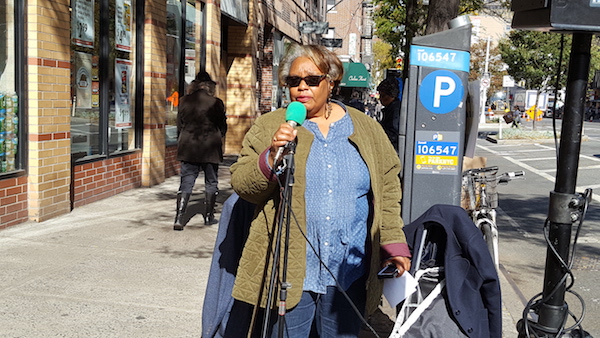
During the protest, she said that the Chelsea Reform Democratic Club is behind the activists’ goal. “Keep it up, fight the power and we’re with you,” she said.
Marni Halasa, who is running for the District 3 City Council seat, called on Gristedes “to work with the New York Department of Health. All of our elected officials need to be united in the cause.”
Halasa said that the next step might be a boycott.
Medelius, who lead the group in a chant of “No WIC, no Gristedes,” said there should be no need for a protest in 2017 for food for women and children. “This is not the time to stay silent,” he said. “We have homework to do because a lot of our neighbors don’t know.”
After the protest, he said, “It would have been nice, definitely, for electeds to show up,” calling it a “little disappointing” that no elected officials came.
“I support the demonstration,” State Senator Brad Hoylman, who had a campaign walk and could not attend the protest, said by phone.
It is “unacceptable” that Gristedes does not accept WIC while other supermarkets in the neighborhood — Ideal and Western Beef — do take the vouchers, he said.
“There’s got to be a way to make this work,” he said. “It’s an imperfect system in terms of these overdrafts but hopefully we can find a solution.”
Councilmember Corey Johnson said in an email statement that his office has been working with other elected officials, including Hoylman, Gristedes, the state DOH and Governor Andrew Cuomo’s office “to resolve structural issues with the way WIC is administered, while strongly urging Gristedes to return to the program.”
He added that the WIC program is “tremendously important” and “the loss of many local grocery stores has left our neighborhoods with insufficient access to fresh, affordable groceries.”
“The refusal of any grocery store to honor WIC payments deprives those with the least options of affordable access to healthy food options and fresh produce, Assemblymember Richard Gottfried,” who is also working on this issue, said in an email statement.
Elected officials sent a letter, dated Oct. 30, to the commissioner of the state DOH, asking the department to “consider ways to make the WIC program more viable for all supermarkets in New York State.” The letter addresses one of Gristedes’ complaints about the program — that the chain is grouped with supermarkets in other parts of the state that have lower overhead costs, such as rent — stating that the program’s “peer group model itself do not seem to take into account the varying costs of doing business within peer groups.”
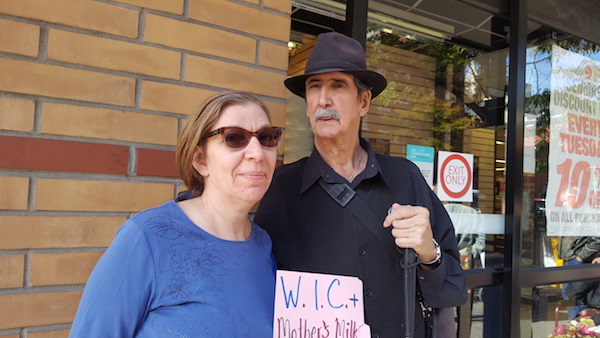
Manhattan Borough President Gale Brewer had another speaking commitment at the time of the protest, her spokesperson, Andrew Goldston, said in an email. Brewer sent a letter, dated Oct. 19, to Catsimatidis asking that he renew his participation in the WIC program. Goldston said that they are working on scheduling a meeting.
After the protest, Acevedo said that Catsimatidis sounded sincere, and that agreeing to a meeting at his office shows true commitment. “The truth is it is more expensive to run a business in New York City,” said Acevedo, who acknowledged that other grocery stores in the neighborhood, such as Whole Foods, also do not accept WIC.
“I want to give him the benefit of the doubt,” said Acevedo of Catsimatidis. “Hopefully, we can come up with a solution.”
